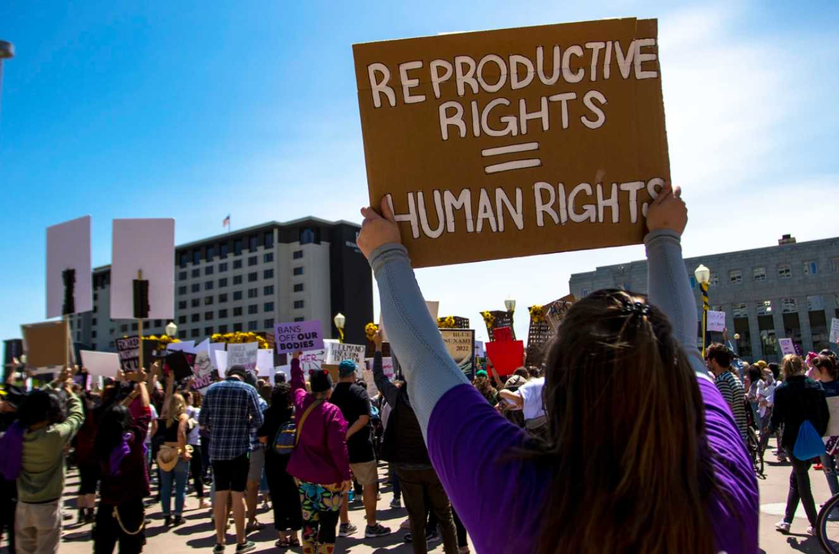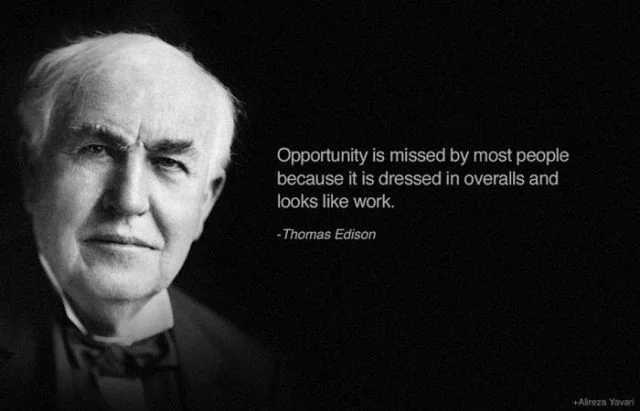PART 1
We have fallen out of love with philosophy. Our disinterest in deep thinking has quickly led to a lack of thinking in general. As a result, we've fallen out of the habit of questioning our premises, which naturally leads to a great number of inaccurate conclusions.
I frequently get the opportunity to see this in my own life through personal conversations, social media, and podcast interviews. Our soundbite culture, molded by the Information Age, loves to repeat catchy political one-liners. If you're someone like me who often engages in political debates, you start to see similar patterns.
One thing that has become apparent is that most people don't really know why they believe what they believe. People love repeating the talking points they've heard from their political-minded friends or from their favorite news outlet. However, when you peel behind the curtain, you might surprise both them and yourself as you see that they don't actually believe the premises upon which their conclusions (i.e. their catchy phrases) are built.
To truly understand what we believe, or what anyone believes, we have to be willing to take the time to investigate beyond what we find on the surface. This requires time and energy that we are so often unwilling to spend, even though the results can be extremely rewarding. As I grow deeper in my understanding of why I believe what I believe, I'm more confident in the decisions I make in my own life and less emotionally disturbed by those who disagree with me. Outrage is often a result of shallow understanding and an awareness of your own ignorance. When we have depth to our values, it's hard to find a reason to be upset with those who see things differently.
Let's look at one umbrella topic that has been widely debated for centuries, is often assumed in our present age, and that has an immense impact on our lives and society: the issue of human rights.
You have surely heard it said that we have an ever expanding list of human rights. It seems that each month we hear new chants from activists stating that "X is a human right"
Abortion is a human right!
Livable wages are a human right!
Shelter, food, and clothing are human rights!
Free college is a human right!
Healthcare is a human right!
It’s much easier to chant a slogan than it is to make a philosophical argument defending the position that slogan represents. We have become such an established and civil society that almost nobody would ever dare to take away someone's human rights. Such actions have led to historical atrocities, such as slavery and the holocaust.
This is what makes those chants so compelling. If these things are in fact human rights, then anyone who argued against the government programs that facilitate the protection of these “rights” must be a bigoted, awful human. This approach has greatly contributed to the deep political and social divide in our society today.
I often like to differentiate what I call "branch issues” from “root issues.” Root issues lie at the heart of the debate and are usually based on more timeless principles that shape our worldview. Branch issues, on the other hand, are the conclusions we come to on a case by case basis. They flow from our fundamental beliefs. The branch issue here comes down to "is healthcare, abortion, minimum wage, etc. actually a human right?
But the root question, I believe, takes us to the heart of the matter – "Where do our human rights come from?" The answer holds within it the definition of human rights and, when it is answered honestly, divides most Americans into two groups. One group aligns much more with the founders of our country, while another aligns with those who wish to base the American system on a new, alternative type of philosophy.
The Declaration of Independence explains the founders’ position well:
"When in the Course of human events, it becomes necessary for one people to dissolve the political bands which have connected them with another, and to assume among the powers of the earth, the separate and equal station to which the Laws of Nature and of Nature's God entitle them, a decent respect to the opinions of mankind requires that they should declare the causes which impel them to the separation.
We hold these truths to be self-evident, that all men are created equal, that they are endowed by their Creator with certain unalienable Rights, that among these are Life, Liberty and the pursuit of Happiness.--That to secure these rights, Governments are instituted among Men, deriving their just powers from the consent of the governed"
There are a few important things to note here, the most important being that our country is founded on the belief that we are endowed by our Creator with certain unalienable Rights. In short, human rights, often referred to as natural rights, come from God. The founders didn't specify who exactly God is. They don't claim the Judeo-Christian God specifically, but they also don't claim that our rights come from "the gods.” They simply acknowledge, in a very Aristotelian way, that our rights come from Nature's God and are found in the Laws of Nature.
Natural Law is that which we are able to logically conclude by reason alone. It is true, according to Church teaching, that humans have the capacity to reason that there is a God and that human life has implicit value in that we are separate from animals and all other living things – precisely because of our capacity for reason. This is what the book of Genesis refers to when it states that we are made in the image and likeness of God. Surely, for the Christian, there is no gray area here. Human life has value. That value comes from God. That value comes along with certain rights, so it naturally follows that human rights come from God.
In this proper order, as we see in the Declaration, it follows that the government does not have power in and of itself, but rather it derives its powers from the consent of the governed. This makes government third in the power structure, being exceeded by God and the individuals who make up society.
You need not be a Christian in order to accept this truth. There is certainly room for those who actively practice other religions, and even some agnostic types, to affirm these beliefs. However, I do not believe that it is possible for an atheist to accept this logic. Because, to be clear, if there is no God, there's no possibility of rights coming from God.
So what is the atheistic view on the origin of human rights? We see this argument displayed time and again from people who claim to be believers in God, but have subtly replaced the Almighty with their "true" source of rights – the government.
In the view of many people today, the government provides the rights for the people. It is the source of determining the law, and the law is where you find your rights. There's no need or room for Natural Law, because reason need not play any significant part in the discussion on human rights. We as a society can progress and change what we consider human rights to be, and therefore, can determine our new list of rights, to include but not be limited to the following: abortion, healthcare, contraceptives, gay marriage, universal basic income, education, etc.
Herein lies the biggest issue with this position – who gets to decide what is a right and what is not? Sure, the simple answer is, the people! And that certainly sounds lovely in theory. But upon further consideration, you may realize that "the people!" actually just means the majority. In many cases, as we see today, those issues listed above get expanded far beyond what the people actually want.
For example, the majority of Americans do in fact support some access to abortion, but the majority of Americans also stand against allowing elective abortions up until birth. However, we see a push by the Biden administration as well as many state governments advocating for full term abortion for any reason at any time, funded by taxpayer dollars.
Extreme positions that exist outside the majority's desires and values often get enshrined in law. On the other hand, there are also times when the majority is simply wrong. Consider another scenario where the majority's desires did in fact become the law of the land in the case of slavery. There was no law prohibiting slavery in the year 1800 and the majority of people living in the US, especially in the southern states, supported that being the case.
Now, the people who believe we have God-given rights, who believe in the Declaration of Independence as written, point to it as the reason why slavery was a grave injustice. There may have been no written law making slavery illegal, but it was indeed a violation of human rights. This is not simply because it violated the Declaration. It goes beyond that. Slavery was a violation of human rights because it violated the pre-existing truth that the Declaration reiterated so beautifully. Namely, it was an injustice against the universal and eternal principle that all men are created equal and that they have God-given rights to life, liberty, and the pursuit of happiness.
On the other hand, what does a "rights-come-from-the-government" person stand on to denounce slavery? Their personal opinion.The only logical argument, based on the premise that your rights come from the government, is that slavery is wrong because it is now illegal. But what about before the Emancipation Proclamation? What made the holocaust not just illegal, but morally depraved? If the government is the bestower of human dignity, then the government would also be able to deprive certain humans of that dignity. This would happen either by majority vote or by the whims of the minority who hold the power.
This is why we've seen such a dramatic shift in the argument over abortion in the last 10 years. In previous years, when arguing with pro-choice Americans who were true Classical Liberals, the argument was one based on science and philosophy. The question was, "is a fetus at 6-12 weeks actually a human life?" Of course, we know that it is. Science has always confirmed that human life begins at conception. However, there were some clever arguments in favor of the "clump of cells" approach that claimed, based on science and reason. These arguments claimed that this was not in fact a human life; therefore, the fetus did not have universal human rights like the rest of us.
Now, however, we see the approach is much different. Many pro-abortion advocates today will grant you that it is in fact a human life. After all, it's pretty hard to argue that an 8-month old baby who is easily viable outside of the womb is not a human life. So now the pro-choice strategy has switched to shouting that "abortion is a human right.” If abortion is a human right according to people and the government, we can assume they have also "eliminated" the human rights of the babies whose lives are on the line. If we acknowledge that this baby is a human life but that they can die against their will, it follows that those babies’ right to life has been dissolved by those in power.
I do grant these pro-abortion advocates that this is the natural end of their position. It is certainly an example of logic coming full circle. Upon its completion, we are able to see how fundamentally different this view of rights really is. The same relativistic philosophy that removed the right to freedom from slaves now removes the right to life from the unborn. This is possible in their minds because God has been replaced with humanism.
_________________________________
Part 2 of 2 will be released next Wednesday (10/25/2023) right here on Locals - stay tuned!




















